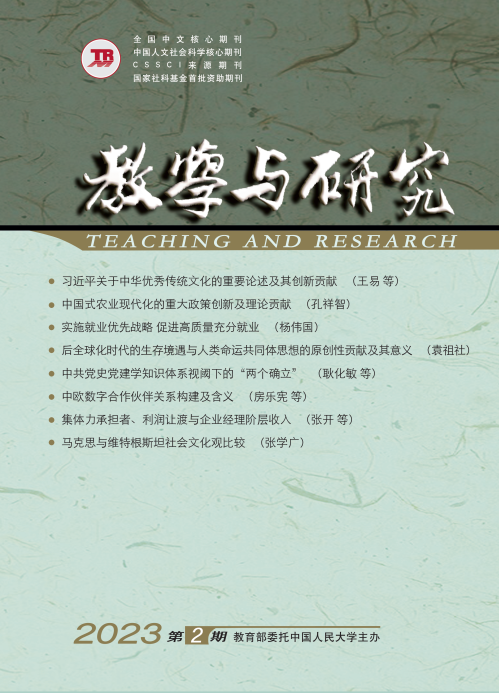As an original political concept, “Two Establishes” has been developed from “uphdding the leadership core”, the first “Establish”, the second “Establish”, “Two Upholds”, and “Two Establishes” in the political discourse of the Communist Party of China. It is an important embodiment of the Party's theoretical innovation in the new era and an excellent case of the integration and innovation of the intellectual concept of the Communist Party of China. Considering the semantics of the concept, the first “Establish” establishes the “core” position of the Party leadership in the Central Committee and in the whole Party from the political dimension; the second “Establish” establishes the guiding position of the Party's innovative theory from the theoretical dimension. Concerning the relationship between the two, the former is the premise and foundation of the latter, and the latter is the extension and sublimation of the former. Logically, the two have the same origin and direction, and have the ability to stay true to the original aspiration and founding mission. In the sense of disciplinary epistemology, the concept of “Two Establishes” has distinct characteristics of being endogenous, keeping pace with the times, and being commensurable, landmark and original. It is of great academic significance to grasp the essence of the great transformation in the new era.



